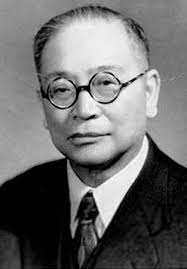Yeh Sheng-t'ao (1894-), a writer of stories and an essayist noted for his high literary standards. He was a founding member of the VVen-hsüeh yen-chiu hui (Literary Research Society), which for the period of 1921-28 dictated through its influential Hsiao-shuo yüeh-pao [short story magazine] the major trends of modern Chinese literature. Yeh was also notable […]






